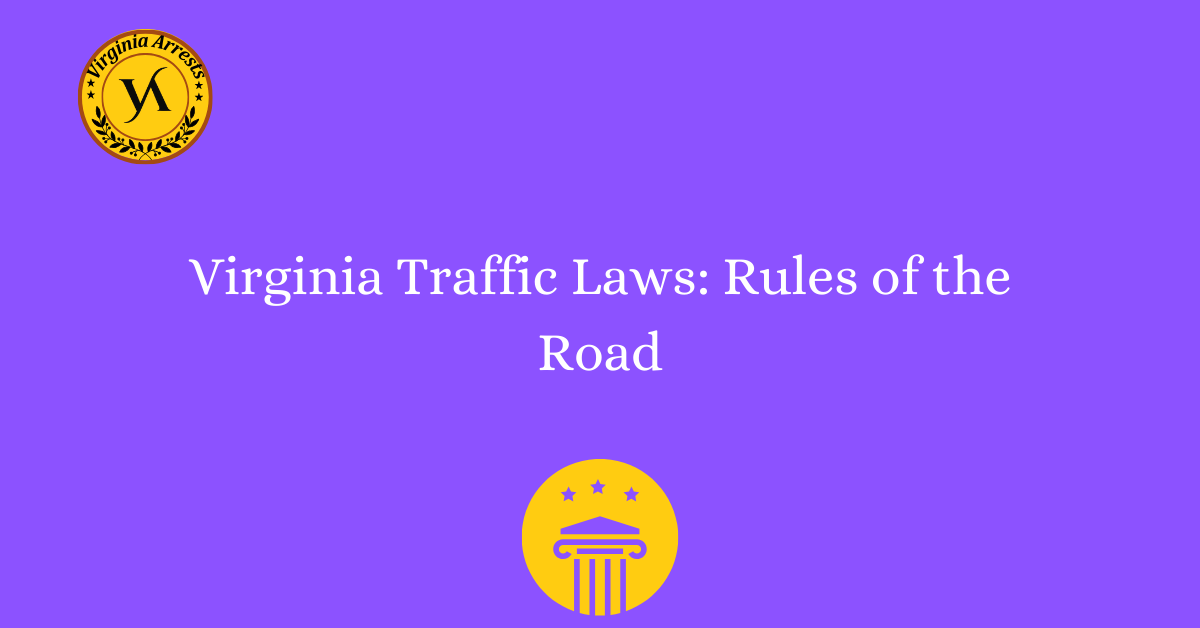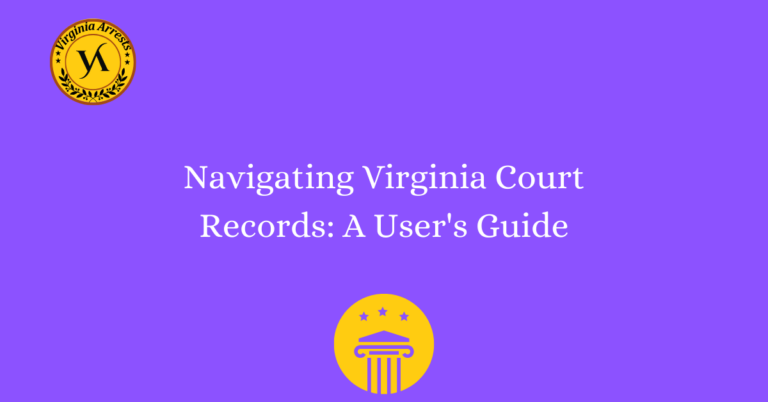Virginia Traffic Laws: Rules of the Road
Driving on the roads of Virginia requires a thorough understanding of the traffic laws and regulations that govern the state. From speed limits to right-of-way rules, these laws are in place to ensure the safety of all drivers and pedestrians. Whether you are a new driver or a seasoned veteran, it is important to stay informed and abide by these laws to prevent accidents and maintain order on the roads.
Traffic Signs and Signals
One of the most important aspects of Virginia traffic laws is the understanding and adherence to traffic signs and signals. These signs and signals provide important information to drivers, such as speed limits, stop signs, yield signs, and traffic lights. It is crucial for drivers to pay attention to these signs and signals to ensure safety on the roads.
Speed Limits
Speed limits are set to regulate the maximum speed at which vehicles can travel on different types of roads. In Virginia, speed limits vary depending on the type of road, such as residential areas, highways, and school zones. It is important for drivers to obey these speed limits to prevent accidents and maintain a safe environment for all road users.
Right-of-Way Rules
Right-of-way rules determine which driver has the priority to proceed in certain situations. For example, when approaching an intersection with a stop sign, the driver who arrives first has the right-of-way. In other situations, such as when a pedestrian is crossing the road, drivers are required to yield and give the right-of-way to ensure their safety.
Driving Under the Influence (DUI)
Driving under the influence of alcohol or drugs is strictly prohibited in Virginia. DUI laws aim to prevent accidents caused by impaired driving. It is important for drivers to understand the legal blood alcohol concentration (BAC) limit and to never operate a vehicle while under the influence.
Seat Belt Laws
Wearing seat belts is mandatory for all occupants of a vehicle in Virginia. Seat belt laws are in place to protect drivers and passengers in the event of a collision. It is crucial for drivers and passengers to buckle up at all times to ensure their safety on the roads.
Distracted Driving
Distracted driving, such as using a cellphone or engaging in other activities that divert attention from the road, is a dangerous behavior that is against the law in Virginia. This law is in place to prevent accidents caused by drivers who are not fully focused on the task of driving. It is important for drivers to eliminate distractions and concentrate on the road while operating a vehicle.
FAQs
What are the basic rules of the road in Virginia?
Virginia requires drivers to drive on the right side of the road and obey all traffic signs and signals. It is important to maintain a safe speed and follow the posted speed limits. Drivers must yield the right of way to pedestrians and emergency vehicles.
What is the seat belt law in Virginia?
In Virginia, all drivers and passengers are required to wear seat belts. Failure to do so can result in fines and points on your driving record. Children under the age of eight must be properly secured in a child safety seat.
Can I use my cell phone while driving in Virginia?
Virginia has a ban on texting while driving for all drivers. It is also illegal to use a handheld cell phone while driving in Virginia, except in cases of emergencies. Hands-free devices are allowed.
What is the speed limit in residential areas?
In residential areas in Virginia, the speed limit is typically 25 miles per hour. However, it is important to always obey the posted speed limit signs, as they may vary in different areas.
Are U-turns allowed in Virginia?
U-turns are generally allowed in Virginia, unless specifically prohibited by signs. However, it is important to make U-turns only when it is safe and legal to do so.
What is the penalty for driving under the influence (DUI) in Virginia?
In Virginia, the penalties for driving under the influence (DUI) can include fines, license suspension, mandatory alcohol education programs, and even jail time. The specific penalties depend on factors such as blood alcohol concentration and prior offenses.
Conclusion
By understanding and following the traffic laws and regulations in Virginia, drivers can contribute to a safer and more organized road environment. It is essential to stay informed about these laws and to always prioritize safety while driving.







